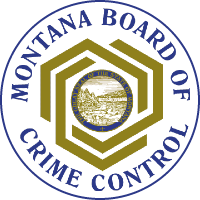Program Highlights
Montana Board of Crime Control (MBCC) honors criminal justice programs and community-based programs that merit recognition for providing effective services to address public safety-related issues in their communities or statewide. If you would like your program to be considered, please complete the information below and provide any supplemental materials as appropriate. MBCC will highlight at least two programs per year and applications will be archived for future consideration. MBCC will highlight programs with a statewide press release, certificate of recognition, placement of program information on MBCC’s website and attendance scholarship/recognition at the Annual Montana Crime Prevention Conference.
Documents
Women's Resource Center
2025 Fall Recipient


Founded in 1977, the philosophy of their founding mothers to “take positive action towards meeting the needs of women in Dillon and the surrounding areas through cooperative action with other community groups,” guides our work today, shaping a model that values trusted partnerships, while fostering autonomy and resilience in the survivors they serve.
For nearly five decades, the Women’s Resource Center (WRC) has served survivors of domestic and sexual violence in Southwest Montana, providing free, confidential, client-centered services across the rural communities of Beaverhead and Madison Counties.
At the heart of their service is a simple but powerful belief: survivors are the experts of their own lives, and they should lead their healing journey. This understanding shapes Women's Resource Centers policies and practices, which are informed by the Empowerment Model to remove barriers and open pathways for survivors to move forward at their own pace, in their own way.
WRC client-centered philosophy shapes three core services: crisis intervention, advocacy, and education and outreach. Survivors access immediate support through the 24/7 crisis hotline and safe housing in our emergency shelters, including Heron House, which opened in 2024. All client spaces are designed with trauma-informed principles, and a boutique-style client resource room allows survivors to select food, clothing, and personal care items with dignity.
Advocacy is guided by each survivor’s needs and goals, providing a flexible, survivor-led path. Legal advocacy supports safety measures, understanding rights, and informed decisions regarding parenting and family matters. Evidence-based counseling integrates client’s unique values and preferences to improve outcomes , while community education and outreach work to prevent violence, teach consent, and foster healthy relationships.
Collaboration is central to WRC’s mission, and now built into our funding model. WRC was awarded an OVW Rural grant that invests directly in community partnerships by providing new equipment and training for law enforcement, supporting a victim witness assistant in the County Attorney’s Office, expanding Crisis Intervention Team (CIT) training for first responders, and increasing access to mental health services for survivors. This approach reflects a core truth: survivors rely on multiple systems for support, and when partners are equipped to respond, survivors experience stronger, more effective outcomes.
WRC has refined not only what they do, but how they do it. The reward of intentionally crafting their service model is seen in the record number of clients served, the trust they have built with their communities, and collaborative partnerships that ensure survivors and their families have unconditional support as they lead their own journey toward safety, healing, and independence.
For more information, please visit Women's Resource Center: www.wrcmt.org
Cascade County Veterans' Treatment Court
2025 Spring Recipient
Established in 2013, the Cascade County Veterans’ Treatment Court (VTC) serves justice-involved veterans with a high risk to reoffend and a high need for treatment services. Designed for veterans charged with crimes linked to serious treatment issues, often stemming from their military experiences, the Cascade County VTC offers an outpatient, court-managed program. Participants undergo appropriate treatments, are carefully screened before admission, and are continuously monitored. To date, the VTC has graduated 147 participants. Since its establishment, the Cascade County VTC has gained national recognition for its high success rate, innovative approach, and commitment to reducing recidivism.

The mission of Cascade County VTC is to reduce crime, enhance public safety, the taxpayer costs, and enrich lives by facilitating sobriety, treating mental health conditions, improving social relationships, and promoting lifelong stability for veteran offenders in the community. By providing an alternative to incarceration, the Cascade County VTC saves taxpayers money by reducing jail and prison populations. It also enhances public safety by addressing the root causes of veteran-related offenses, preventing future crime.
Notable Accomplishments
- High Success Rate: Of those who exited the program, 86% graduated. This high graduation rate underscores the program's effectiveness in rehabilitating veterans and reintegrating them into society.
- National Recognition: In 2025, the Cascade County VTC was named one of only five “Mentor Courts” nationwide by All Rise’s Justice for Vets division and the U.S. Department of Justice. This designation highlights the court’s effectiveness and allows it to serve as a model program for other jurisdictions across the country looking to establish similar courts.
- Participant Success Stories: Graduates of the Cascade County VTC have achieved significant personal milestones. Many have secured employment, started businesses, and pursued further education, reflecting the program's positive impact on their lives.
Cascade County’s VTC operates as a voluntary program that provides veterans with an alternative to incarceration. The program lasts 14 to 16 months, during which participants receive mental health treatment, substance abuse counseling, and mentorship. Participants are closely supervised and must adhere to a structured plan that includes:
- Regular court appearances
- Frequent drug and alcohol testing
- Case management and treatment
- Mandatory employment and/or education
- Community engagement
- Relapse prevention
- Peer mentorship with fellow veterans
The Cascade County VTC program is based on the Ten Key Components to Adult Drug Court treatment model that embraces collaboration and joint decision making. Their team includes a judge, defense, prosecution, treatment, law enforcement, probation, case management, community providers, peer support, and mentors. This multidisciplinary team allows the VTC to provide complete wrap-around services to participants, addressing their unique needs and guiding them toward a stable and productive future.
Through its commitment to rehabilitation, accountability, and support, the Cascade County VTC continues to provide veterans with the tools they need to rebuild their lives and successfully reintegrate into society.
For more information about the Cascade County Veterans' Treatment Court, please visit:
https://www.cascadecountymt.gov/550/Veterans-Treatment-Court
B.E.A.R. - Venture OUT
2024 Fall Recipient

Weekly one-on-one mentoring
- Weekly after-school small group mentoring
- Quarterly activities, including family activities and service-learning projects
- Multi-day summer activities
- Weekly school-based groups, if allowable
- Peer Mentoring positions available for youth aged 15-17
Venture OUT uses all of the core components of the evidence-based Project Venture model:
- 130-150 service hours/youth/year
- Experiential education
- Strengths-based approach
- Cultural and family connection
- Service-learning
- Connection to nature
New this year, youth at B.E.A.R. will have access to free clinical mental health counseling to address the rising mental health needs identified by our staff, parents, and local and state leaders. The counselor will be on-site during group activities to help youth who need additional assistance with emotional regulation or de-escalation; to do suicide assessments when necessary; and to consult with staff around the mental health needs of individual youth.
By providing several types of healthy connections and supports for youth through evidence-based activities with caring, youth-centered, culturally sensitive, and trauma-informed mentors on staff, their protective factors are increased and risk factors decreased, helping youth to feel more supported and capable and to be significantly less likely to engage in delinquent and antisocial behaviors.
95%-99% of youth increase their pro-social behaviors multiple times while in the program (this is measured through a combination of daily activity summaries in which program leaders document specific behaviors such as empathy, cooperation, leadership, and positive communication; and pre and post-surveys administered to youth, when possible.)
At least 65% of families participate in positive family events. Families come to dinners, end-of-trip celebrations, community events, and more. Staff mentors provide strengths-based communication about youth and facilitate beneficial activities such as awards, slide shows, and more to encourage positive interactions.
At least 95% of youth in Venture OUT consistently do not offend/re-offend in the juvenile justice system, which is a significantly lower rate than the general youth county population.
One of Venture OUT’s most significant achievements recently is the construction of a High and Low Ropes Challenge Course in city park. B.E.A.R. partnered with the City of Hamilton and countless businesses and individuals to build the course. Challenges Courses are a fantastic tool to support the evidence-based Project Venture model and is recommended for use by that program. The course is greatly increasing B.E.A.R.’s community recognition, allows for increased quality of service to our youth as well as other community organizations, and enhances program outcomes.
B.E.A.R. has operated Venture OUT for over 20 years, since the year 2000, and is the longest-running replication site of Project Venture, founded by the National Indian Youth Leadership Program (NIYLP). Due to Venture OUT's success, for over ten years, B.E.A.R. has been selected from over 50 Project Venture replication sites around the country to receive multi-state mentoring initiative funds. National Indian Youth Leadership Program (NIYLP) provides extensive support, training and collaboration with B.E.A.R. Currently in its 30th year as an organization, before that B.E.A.R. operated outdoor education programs and field trips for youth.
By addressing educational, social, and mental health needs, Venture OUT helps youth develop positive relationships, build life skills, and reduce their risk of engaging in delinquent behaviors.
Friends of the Children
2024 Spring Recipient
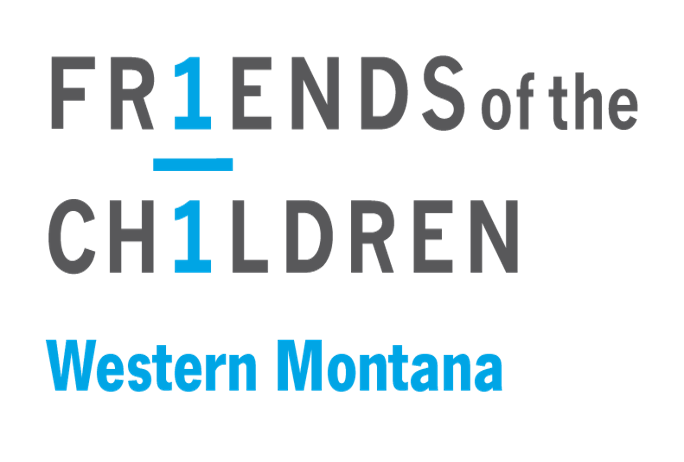
In Montana, private philanthropists, behavioral health practitioners, and community leaders recognized that too many children in Montana are in crisis - as demonstrated by our very high rates of youth in foster care, children who are food and housing insecure, and youth who face neglect and abuse. Friends of the Children wanted to support an innovative model of long-term whole-family services that is proven to lift children up from poverty and change long-term health and socio-economic outcomes.
Friends of the Children disrupts cycles of generational poverty and cycles of trauma by pairing amazing children enrolled in the program with full-time, salaried professional mentors (called 'Friends') for 12+ years, no matter what.
Friends-Western Montana launched in 2021. They are part of a 30-year-old national network of Friends of the Children chapters. This year, Friends of the Children will serve 64 families and more than 225 individuals in Missoula and Lake Counties. The national network launched in 1993 with 35 chapters in 22 states.
Friends of the Children serve youth and families who live in poverty, and all of the children served have experienced multiple traumatic events by the time they join the program between the ages of 4-6. 90% of households served are led by single parents. Providing a long-term, consistent, and loving relationship with a positive adult role model helps children build resiliency and self-confidence and greatly improves long-term upstream health outcomes.
Their mentors, which Friends of the Children refers to as “Friends,” are highly experienced youth-centered and trauma-informed professionals. Many of the Friends have advanced degrees and 10+ years’ experience working with children. Each Friend serves 8 youth and spends 4 hours per week with each child, engaging in one-on-one activities and time together in their schools, home, and community that foster positive social emotional growth and healthy connections to adults and their peers and help youth build important life skills.
The program is intentional and individualized as Friends work towards goals for each child that are set by the child, caregiver, and Friend.
Friends of the Children also engage caregivers through their two generation (2Gen) work, which they describe as the 3Cs:
- Creating community for each family
- Checking-in regularly
- Connecting families to resources
The work is evidence-based. Friends of the Children tracks all outings and outcomes in their Efforts to Outcomes Database to allow them to adapt and innovate their services to each family.
- 92% of youth enroll in higher education, secure living wage employment, or serve our country in the military.
- 98% delay parenting despite more than 80% of their parents being teen parents.
- More than 93% avoid the criminal justice system, despite more than 60% of parents having criminal justice involvement.
- More than 95% of caregivers in the Friends-Western Montana program reported in their annual survey that they feel supported by the program in navigating public systems (schools, foster care, Medicaid) and are better equipped to make positive parenting choices.
The program is replicable and scalable. Since their launch, more than 10 new chapters have opened nationally, including a sister chapter based in Billings. Friends of the Children have also launched a second program on the Flathead Indian Reservation in Lake County. Their vision is that one day every child in Montana who needs a Friend and is at risk of entering the foster care system will have a Friend.
For more information about Friends of the Children, please visit: https://friendsmontana.org/
The Friendship Center
2023 Fall Recipient
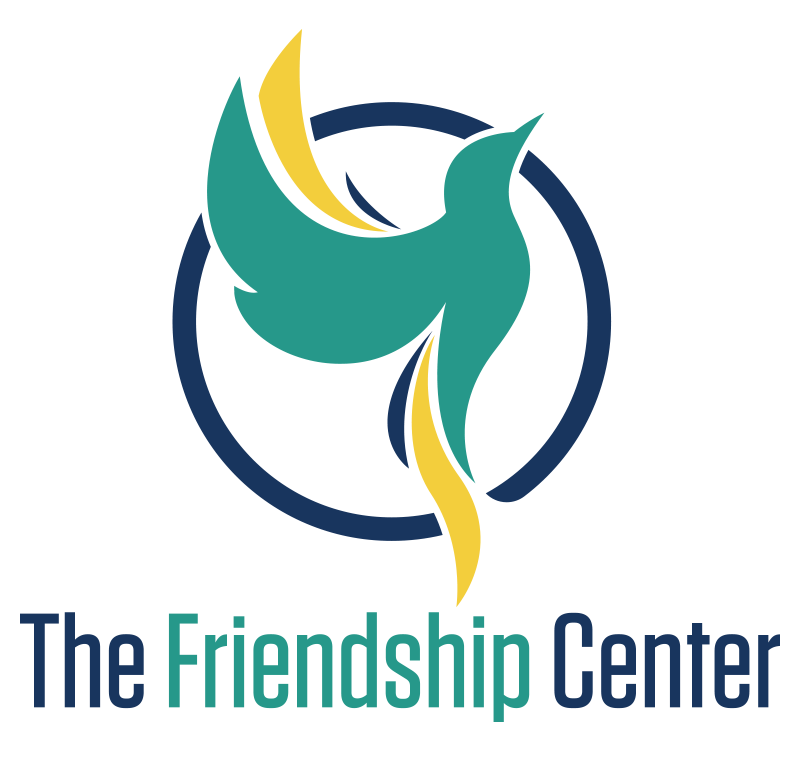
The mission of The Friendship Center (TFC) is to be a safe haven for those affected by domestic violence, sexual assault, and stalking and to empower our community to flourish in relationships free from violence.
The Friendship Center was established as a Model City project, funded by President Johnson’s Great Society legislation. It began as a homeless shelter for families and a safe haven for women experiencing domestic violence. The Friendship Center expanded its ability to offer services during the 1980s as domestic violence became more widely recognized as a societal problem, and following the passage of VAWA in 1994, began to serve survivors of sexual assault. After VAWA was reauthorized in 2000, TFC expanded to serve survivors of stalking. The Friendship Center has continued to adapt to provide person-centered, trauma informed, and culturally sensitive services to those impacted by domestic violence, sexual assault, and stalking throughout the 21st century.
Every individual who receives services from TFC is less likely to continue to experience harm, regardless of what type of service is provided. As well as providing direct services to survivors, The Friendship Center operates a 24/7 Crisis Line that offers support to the community and partner agencies around the clock every day of the year.
The Friendship Center prides themselves on staff retention, which benefits the community and clients, providing more stability and consistency, and therefore, better outcomes for survivors who seek assistance more than once. They maintain strong working relationships with community partners through the longevity and experience of their staff, and their partners are more likely to make referrals to TFC that benefit survivors.
In recent years, The Friendship Center has increased efforts to provide community outreach and education for the purpose of preventing intimate partner violence and sexual assaults. The outreach and education coordinator, in collaboration with direct services advocates, presented to more than 1,000 community members in 2022, with 35 presentations focused on consent and healthy relationships. TFC continues to build new relationships and gain traction in school districts within their service area, with the belief that empowering youth to seek out and build healthy relationships will decrease the frequency of relationship abuse in future generations.
If you are in need of safe shelter, emotional support, legal advocacy, or help because you are in an abusive relationship, or are concerned about someone who is, please call The Friendship Center at (406) 442-6800.
For more information about The Friendship Center, please visit
Southwest Montana Drug Task Force
2023 Spring Recipient
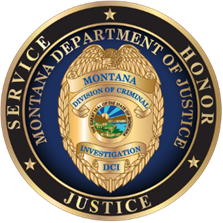
The Southwest Montana Drug Task Force (SWDTF) was established in 1994 to combat drug trafficking, investigate and respond to drug endangered children cases, support local law enforcement, and conduct public outreach and education on the dangers of illicit drugs. SWDTF is the primary drug enforcement and investigation unit that serves Butte-Silver Bow and surrounding counties in the region, including Madison, Jefferson, Powell, and Deer Lodge. They also serve communities such as Deer Lodge, Whitehall, Boulder, Phillipsburg, and Dillon.
SWDTF is overseen by the Montana Division of Criminal Investigation (DCI) with a Regional Agent in Charge serving as the task force commander. The task force is comprised of DCI Agents, staff, and a Task Force Officer (TFO) from Butte – Silver Bow Law Enforcement.
The SWDTF vigorously investigates drug trafficking organizations involved in trafficking dangerous drugs, including fentanyl and methamphetamine, and committing drug-related violent crime.
In 2022, SWDTF dismantled a significant drug trafficking organization following an investigation that spanned more than 2 years. The organization was attributed to trafficking over 2,000 pounds of methamphetamine and over 700,000 fentanyl pills, the majority of which was destined for Montana. The organization had ties to the Sinaloa Cartel, which brought massive quantities of methamphetamine, counterfeit pills containing fentanyl, and heroin to Butte for redistribution.
Throughout the investigation, SWDTF partnered with the Drug Enforcement Administration (DEA) and numerous federal, state, and local law enforcement agencies. The investigation was one of the largest federal drug trafficking probes in Montana in recent years and began in 2019 with a tip about a suspicious package containing money being sent to California.
The investigation revealed that the Mexico suppliers brought drugs on rail and by individuals across the border at ports of entry to stash houses in Southern California. The traffickers then transported multi-pound quantities by vehicle and through the mail to Butte. From Butte, local dealers trafficked the drugs to Missoula, Helena, Great Falls, Bozeman, Billings, and Wolf Point for street-level distribution. The dealers then laundered drug proceeds through the mail, cash shipments, and wire transactions back to the Mexico suppliers.
It is estimated that approximately $2.98 million was laundered in drug proceeds. During the investigation, law enforcement seized 65 pounds of methamphetamine (the equivalent of 235,560 doses), more than 2,000 counterfeit oxycontin pills containing fentanyl, and three pounds of heroin. Law enforcement also seized $32,875 in cash and 19 firearms.
The investigation resulted in the federal convictions of 22 persons, including defendants in California and Mexico with direct ties to the Sinaloa Drug Cartel. The total sentences for these 22 defendants cumulatively spanned more than 132 years.
For full details on the investigation, please read the full article, Investigation dismantles Butte drug trafficking organization with ties to the Sinaloa Cartel.
SWDTF Spring 2023 Program Highlights Presentation
Feedback on This Case
There’s no question that Mexico is the source of illegal drugs pouring into our state. These cases – which are the culmination of years of investigative and prosecutorial work – put that to rest.
Our DCI narcotics agents and Highway Patrol troopers work closely with federal and local partners every day…
The success of this collaborative enforcement action would not have been possible without the dedication, cooperation, and hard work of all of our law enforcement partners to hold offenders accountable and to keep Montanans safe
I am very grateful for the multi-jurisdictional approach and the cooperation between local, state and federal law enforcement. These are lengthy, labor-intensive and detailed operations,” “This investigation was very successful in that a significant number of defendants were indicted. It puts drug traffickers on notice that Southwest Montana is a very dangerous place to do business.
Hi-Line's Help for Abused Spouses
2022 Fall Recipient
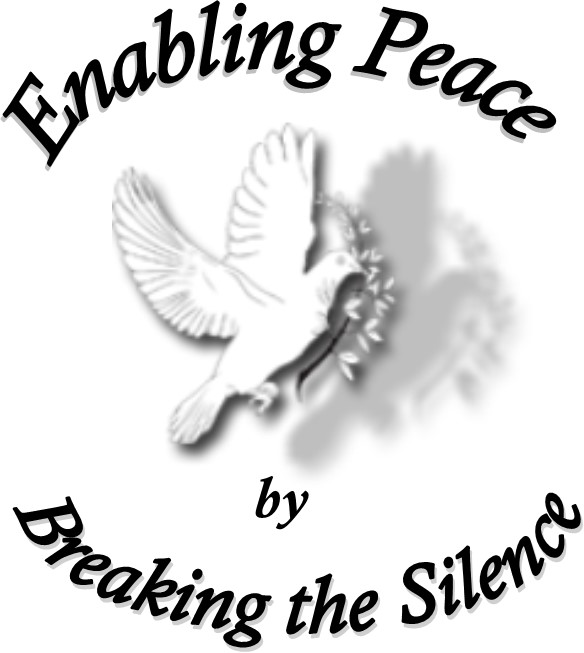
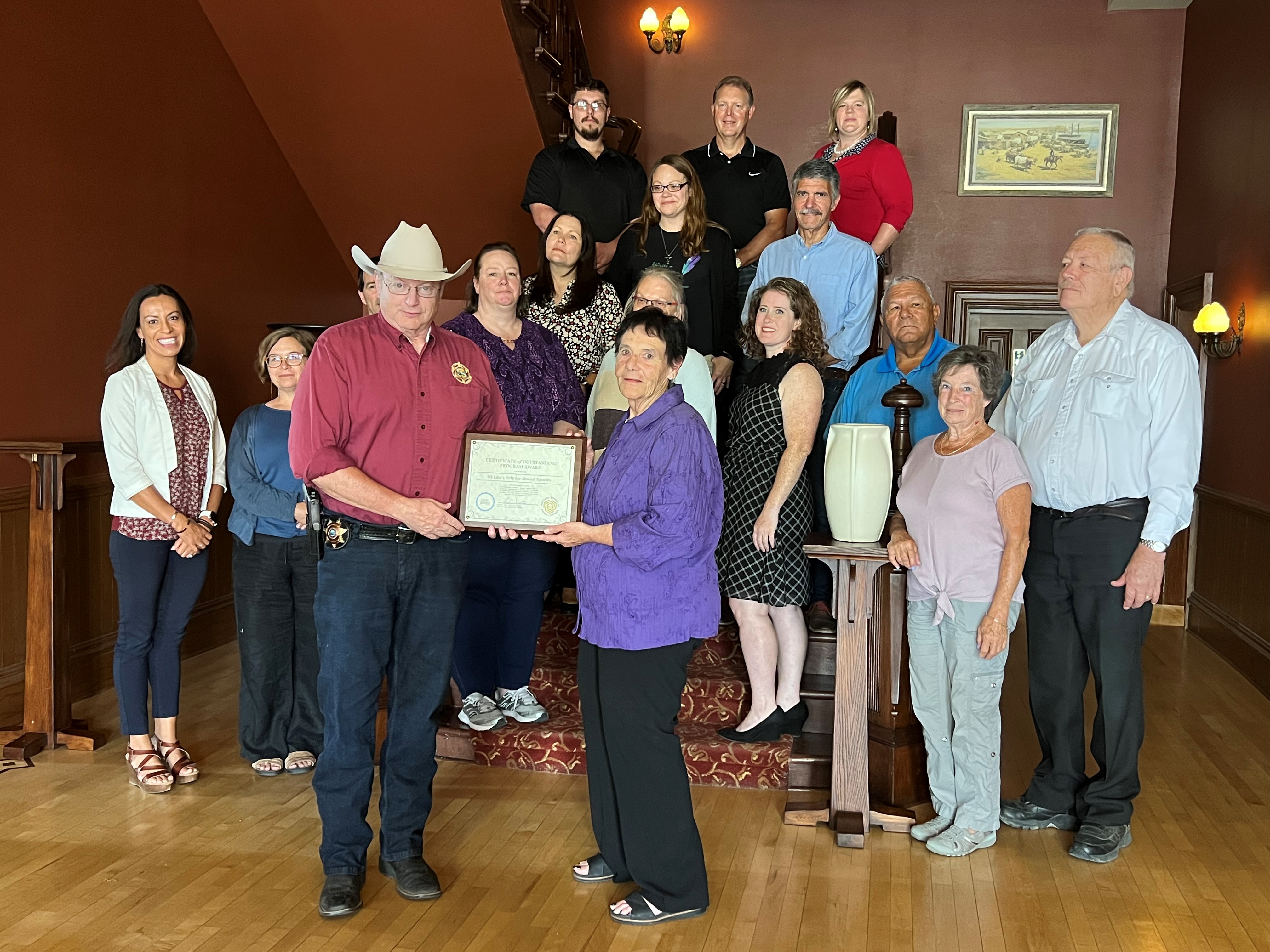
Hi-Line’s Help for Abused Spouses’ goal is to provide every victim with a resource, safe space, and emergency and continued support and advocacy so that they may live a life free of violence and fear.
Originally called Triangle Transition, Hi-Line’s Help for Abused Spouses, Inc. was founded by Loy Chvilicek. Loy saw her friends and neighbors on the Hi-Line being abused and, realizing that they had no help or anywhere to go, felt it was her ministry. This early program was instrumental in starting the shelter in Havre and was the basis for many other programs in Montana. The intent of the program was to move down the Hi-Line and pick up counties and develop services to educate volunteers and the public on the severity of domestic violence in our rural farming communities.
Hi-Line’s Help strives to reduce violent crimes by educating the communities and breaking the cycle of violence. The organization helps victims of sexual assault, dating violence, domestic violence, and stalking leave their violent situations by providing emergency transportation, safe homes, and emergency financial assistance, by helping to obtain orders of protection, and by providing emotional support and advocacy with trained staff and volunteers, which is essential to breaking the cycle and reducing violent crime. Hi-Line’s educates the community, professionals, schools, health care providers, and other human and community service providers on the dynamics of abuse with their multi-media approach using radio, Facebook, brochures, posters, and videos. Creating a broader circle of awareness about the signs of abuse and safety plans is essential to promoting victim safety, and the services provided by the trained advocates at Hi-Line’s Help has been critical to promoting current and future victims’ safety.
Hi-Line’s Help has had a contract with a Licensed Clinical Professional Counselor, Licensed Addiction Counselor, for the last 4 years to provide substance abuse, trauma, and mental health counseling to adult and youth victims of domestic violence, sexual assault, dating violence and stalking. She travels to the Hi-Line’s Help office bi-monthly to provide counseling and support to victims that are referred to her by the program advocate. She has been instrumental in providing services that victims would be otherwise unable to receive due to cost and travel restrictions.
Hi-Line’s Help incorporates several ways to increase efforts and awareness to combat the stalking epidemic. Staff continuously furthers their critical knowledge on stalking through trainings, webinars, and extensive research. Staff and project partners have developed multi-media campaigns consisting of newspaper articles, public service announcements, social media, and videos to educate the public. Educational presentations are offered to service area schools, community members, and other service providers.
Furthermore, Hi-Line’s Help provides an online training course and follow-up in-service training for staff and volunteers on the dynamics of sexual assault, domestic violence, dating violence and stalking. Staff and volunteers receive extensive training on orders of protection, safety planning, and how to communicate with victims in crisis via telephone and face-to-face contact. They review and discussion statutes and are required to attend in-service trainings that provide updated information. All participants must complete the course before they can work with children, youth, and adult victims. The Executive Director, project partners, and Hi-Line’s Help staff continue to research time-proven practice materials and seek out trainers with expertise to identify, assess, and appropriately respond to child, youth, and adult victims of domestic violence, sexual assault, dating violence and stalking.
The program is highly replicable in other jurisdictions and Hi-Line’s Help believes that there is a need to replicate outreach programs with victim services in areas where shelters are the only service offered to victims. Often, an area that only offers shelter leaves victims to find their own way through court paperwork, support, and outreach services and that leaves them lost.
As the oldest program in Montana, and through their longevity, Hi-Line's Help for Abused Spouses’ most significant achievement is the growth of the program since it was established. Hi-Line’s Help has grown from the desire of one woman to help her neighbors to being run out of an office in a barn to a five-office program employing six advocates and covering six counties. Hi-Line's Help has helped thousands of victims of violence since 1976.
For more information about Hi-Line's Help for Abused Spouses, please visit https://www.hlhas.com/.
Online:
MT DOJ Sexual Assault Services Initiative (SAKI)
2022 Spring Recipient

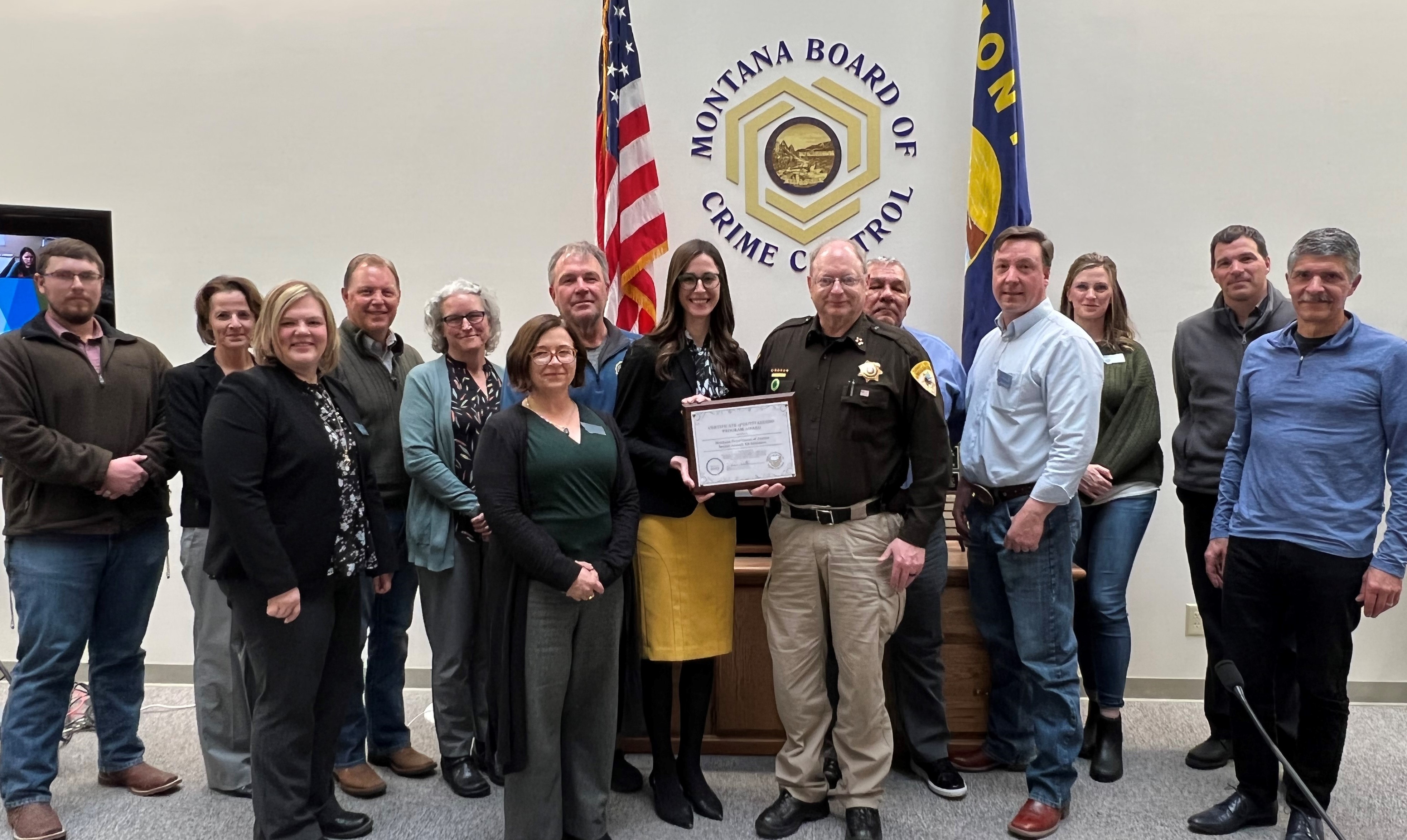
The Montana Department of Justice (MT DOJ) Sexual Assault Kit Initiative (SAKI) program has become a statewide resource and dedicated partner for sexual assault responders.
Montana has been a recipient of the National Sexual Assault Kit Initiative Grant since 2016. SAKI was designed to end the rape kit backlog, identify strategies to prevent another backlog from accumulating, develop and improve sexual assault response training, and fundamentally enhance responses to survivors of sexual assault.
MT DOJ SAKI works to end the backlog of untested and partially tested rape kits by utilizing SAKI funding to identify, collect, and test backlogged rape kits. SAKI works with jurisdictions to review backlogged cases and conduct survivor notifications. Partnering with local jurisdictions and advocacy groups, SAKI connects survivors to community resources and support services that meet their needs.
MT DOJ SAKI also pursues sustainable practices by working on legislative reform. In 2019, Montana passed a sexual assault evidence kit testing law, expanded victim rights for sexual assault victims, and implemented requirements to track sexual assault evidence kits. The Sexual Assault Kit Tracking System allows individuals to learn the status of their sexual assault kit anonymously. Law enforcement agencies, healthcare facilities, and crime laboratories are required to use the system; and SAKI provides technical support and training for hospitals and law enforcement agencies related to tracking sexual assault kits. Montana's kit tracking system has allowed MT DOJ SAKI to identify sexual assault evidence kit workflows, develop accountability, and educate on the importance of testing.
In addition, SAKI offers training for responders of sexual assault, collaborates with the Montana Law Enforcement Academy to train basic officers in sexual assault response, and has developed free, online sexual assault response training courses. SAKI also released an Investigating Sexual Assault Law Enforcement Guide, which provides officers a resource in the field. Training not only teaches best practices in the sexual assault response, but the importance of taking care of yourself as a responder.
The MT DOJ SAKI program is a diverse program and has even assisted in cases beyond the sexual assault kit. For example, MT DOJ SAKI worked with local jurisdictions to fund advanced DNA testing in cold case sexually motivated homicides and unidentified remains cases.
MT DOJ SAKI has organically fostered a sexual assault response network by discussing the problems, identifying solutions, and working collaboratively with stakeholders to adopt sustainable best practices in Montana.
Victim-Witness Assistance Services
2021 Recipient
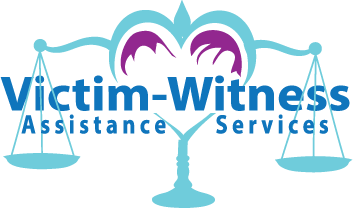
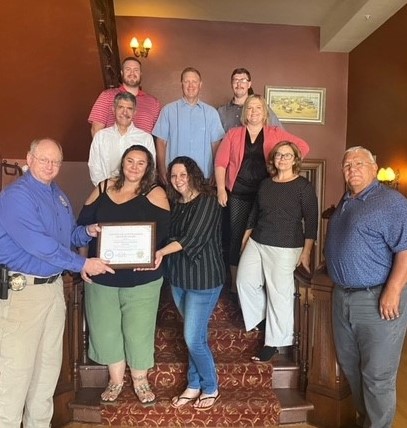
Bottom row - Sheriff Leo Dutton, Lacey Bateman,
Nichole Griffith, Shantelle Gaynor, Rick Kirn
Middle row - Bryan Lockerby, Kaydee Snipes Ruiz
Top row - Jared Cobell, Mike Sanders, and Wyatt English
Victim-Witness Assistance Services (VWAS) is a unique community-based victim services program that also provides system-based services to victims of crime in Cascade County. For 30 years, VWAS has provided free and confidential services to all victims of crime, has helped victims cope with victimization, and has ensured victims have a voice in the criminal justice process. VWAS advocates provide 24-hour crisis response services and work closely with law enforcement, hospital staff, City and County prosecutors, the Child Advocacy Center, the local shelter staff, and other community organizations to best serve victims of crime.
VWAS started as a college project in the early 1990s in response to the evident need for services to be available for victims in Cascade County. With the help of the late Lt. Jim Sharpe, VWAS started with a handful of volunteers, a desk, and a phone in the middle of an office in the Great Falls Police Department.
What started as a volunteer project to create a safe space for victims of crime has evolved into a fully functional non-profit that outgrew its small police department office, has employed up to four full-time advocates, and handles approximately 500 active cases at any given time. VWAS staff serve as the crime victim advocates throughout the criminal justice process, the community advocates for crisis response at the emergency room, trained advocates for the local accredited Child Advocacy Center, and as partners for law enforcement to call upon.
VWAS Director, Nichole Griffith, was selected to serve on the state Child Abuse and Neglect Review Commission and the new local Crime Task Force in Great Falls. Current VWAS advocates have been serving the community since 2007 and 2008 and are still going strong. In a career field that sees so much trauma, sadness, frustration, and turnover, VWAS finds strength in the opportunity to help others and provide support when needed most.
Online:
- Great Falls Tribune: "Helping victims of crime cope and heal"
